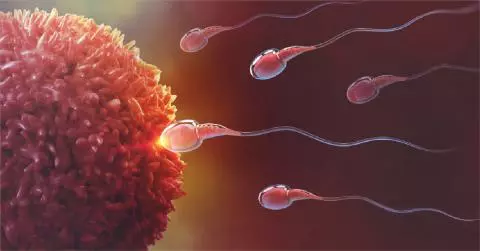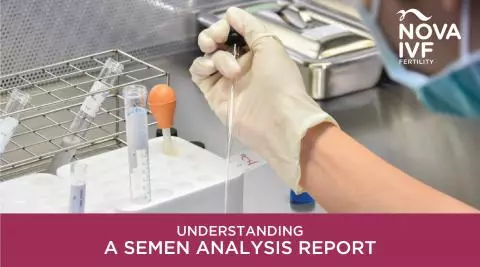Male Infertility: More Common Than You Think

Male infertility is a problem that’s often ignored, especially in India. But the truth is, about 1 in 3 cases of a couple’s inability to have a child is due to what is called the ‘male factor’. While there are multiple causes behind this, it ends up in one effect: the male partner is unable to produce enough viable sperms to fertilise his wife’s egg.
Sperm could be too few in numbers, inactive or misshapen, or blockages could prevent the delivery of sperm. The reasons for this varies: from varicocele (a swelling of veins), semen abnormalities, hormonal imbalance, blockages, certain diseases and medication to lifestyle issues (stress & smoking).
When the cause is a physical blockage, microsurgery can rectify the condition. Other treatments include using a vibrator or electro-ejaculation to collect sperm for IVF.
One of the most common forms of male factor infertility is oligozoospermia – a low sperm count. An extreme case of this is azoospermia, a total absence of sperm, in effect a zero sperm count. Typically both of these require specialised treatment. Azoospermia requires extracting sperms from the testes directly, separating the best, the most active and the healthiest sperm from the others using advanced techniques. These can then be used for ICSI to achieve pregnancy. In case there are no viable sperms, the couple can still conceive using donor sperms.
While there are medical and surgical procedures to help you, there are ways in which you can help yourself and work towards increasing your sperm count
How To Improve Your sperm count: Foods And Habits That Can Help You
Yes, it is possible to improve sperm counts and sperm health, but it takes time, significant lifestyle changes and dedication.
Before we get to what you can do, it’s important to look at the time it will take. The human body typically takes 72 days to produce new sperms – so you will need to wait at least two months for any changes to occur. Visible effects may take even longer.
Lifestyle Changes
If you smoke, stop. Now. Tobacco use is linked to asthenozoospermia (low sperm motility), deformed and weak sperms as well as genetic damage to chromosomes. It is one of the most important things to be aware of. So STOP SMOKING!
If you consume alcohol in excess, you may need to reduce the quantity. Excessive alcohol can affect your sexual performance. An occasional drink won’t harm your reproductive potential, but avoid heavy and binge drinking.
And last, avoid extremely tight underwear – since the testes, responsible for sperm production, need a cool environment.
Sperm Superfoods
Besides the usual fats, proteins and carbohydrates, healthy sperms need a few specific types of nutrients and minerals. Because it turns out that sperms are incredibly sensitive to what you eat and the right kind of food can have an effect on their health and activity.
Here Are Some Of The Essential Nutrients And Their Sources.
Coenzyme Q10
A fatty molecule that provides energy to cells and acts as an antioxidant. Best dietary sources are meat and liver; olive, grapeseed and soya oil; many nuts, including peanuts and vegetables like broccoli, spinach and avocado.
Folate
Those same vegetables are also rich sources of this essential nutrient. As are some types of dal, beans and peas.
L-Arginine
Usually generated by the body. It is helpful for the release of hormones. While the best sources are meat and dairy products, many nuts also have high quantities of this nutrient.
L-Carnitine
An amino acid that helps break down fats and convert them into cellular energy. It also has antioxidant properties. Found primarily in meat, dairy products, avocado and asparagus.
Selenium
An element that plays a critical role in the structural development of sperm by making them stronger. Brazil nuts, asparagus, some mushrooms, fish and meat are the best sources.
Vitamin E
Helpful for generating energy, this vitamin is also an anti-oxidant. Found in many oils, nuts, green vegetables and fish.
Vitamin C
A powerful anti-oxidant and all-round health essential, it is found most plentifully in fruits, especially citrus fruit.
Zinc
Critical for the production of the male hormone, testosterone, it is found in seafood, meat, oats, sesame and yoghurt.
One of the foods that contains many of these key ingredients is asparagus – which has been reputed to be a powerful aphrodisiac in ancient Indian texts!
 Infertility Counselling
Infertility Counselling Female Infertility Treatment
Female Infertility Treatment Andrology Treatment
Andrology Treatment Fertility Enhancing Surgeries - Female
Fertility Enhancing Surgeries - Female Fertility Enhancing Surgeries - Male
Fertility Enhancing Surgeries - Male Endoscopy Treatment
Endoscopy Treatment IUI Treatment
IUI Treatment IVF Treatment
IVF Treatment ICSI Treatment
ICSI Treatment Advanced IVF Solutions
Advanced IVF Solutions Embryology
Embryology Vitrification Egg, Embryo, Sperm Freezing
Vitrification Egg, Embryo, Sperm Freezing Preimplantation Genetic Testing (PGT)
Preimplantation Genetic Testing (PGT) Donation Program Embryo / Egg / Sperm
Donation Program Embryo / Egg / Sperm Self-cycleTM IVF
Self-cycleTM IVF

 Self-cycleTM IVF
Self-cycleTM IVF









